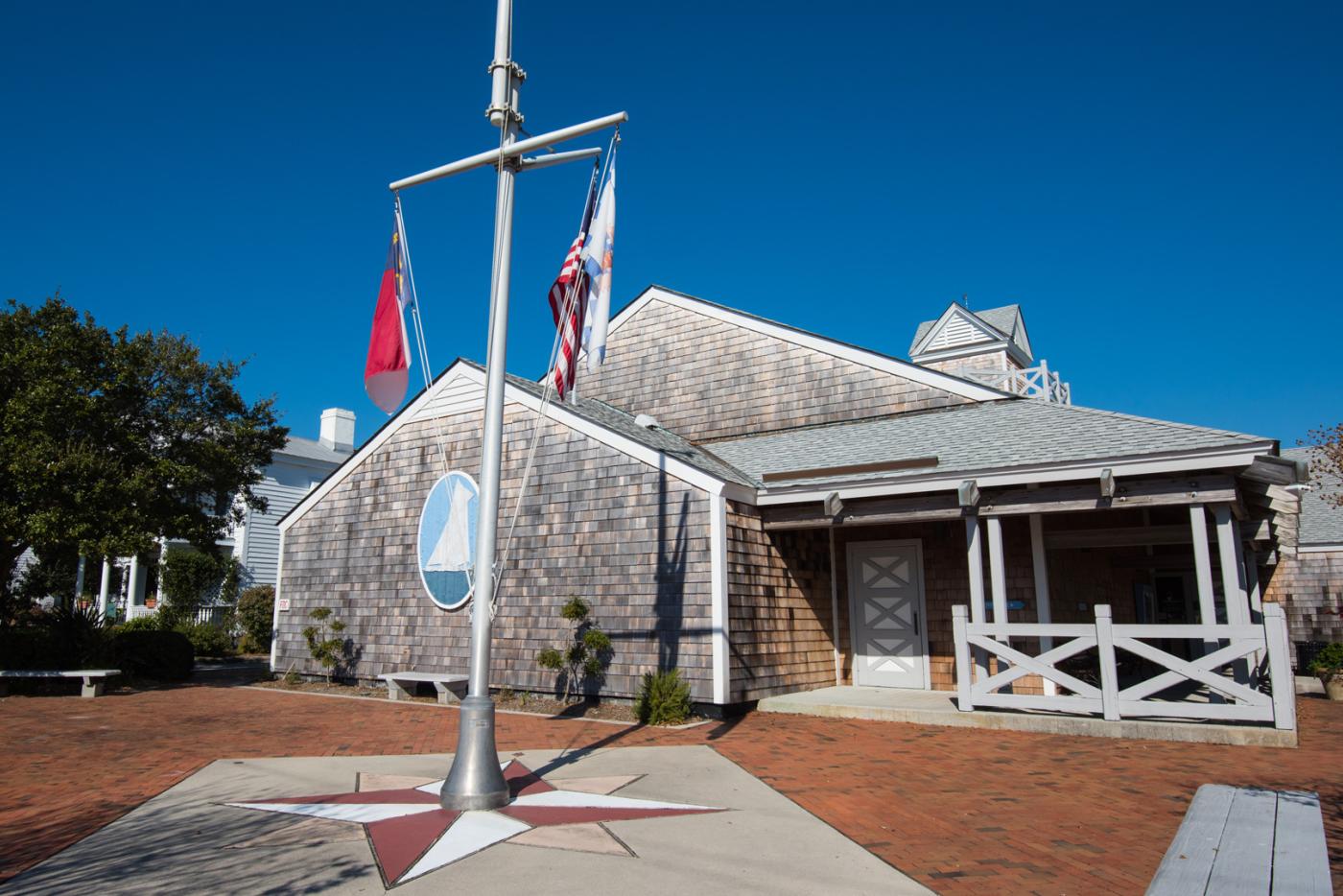North Carolina public schools require more than 1,000 instructional hours each school year. Educators with the North Carolina Maritime Museum in Beaufort can help teachers fill some of them.
The museum, part of the North Carolina Department of Natural and Cultural Resources, offers a variety of free programs that its educators can bring to school groups. These creative, hands-on experiences teach students at all grade levels about the natural and maritime history of the state. Since the museum remains closed for HVAC construction, the programs are currently offered in the classroom or in the field. Limited programming within the museum will resume this winter.
"We know teachers are always looking for meaningful ways to bring lessons to life,” museum Education Curator Courtney Felton said. “By interacting with materials from our collections, students can build on what they’ve already learned — plus maybe pick up a really fun maritime fact or two along the way."
Programs for infants up to preschoolers are indoor-based and include exploring items like shells and bones to learn about texture and patterns, different marine animals or life at sea. Students in kindergarten up to fifth grade have similar in-class programs, adapted to their grade level, or the option of exploring a tidal flat and its salt marsh. Sixth through 12th graders can also explore maritime and underwater archaeology, navigation, oceanography, marine mammals and ecology.
"Whether it’s a preschooler holding a seashell for the first time, a middle schooler learning about navigating the sea or a high schooler testing water samples, students walk away with a deeper connection to North Carolina’s coast," Felton said.
The full list of programs and their descriptions is available online at ncmaritimemuseumbeaufort.com. Select “Group Visits and Outreach” under the Education tab to download the Group Planning Guide. The guide also lists the North Carolina social studies and history curriculum standards with which each program aligns. To schedule a program, fill out the online form on the same page and Group and Volunteer Coordinator Anna Kellner will get in touch.
"We want to make it as easy as possible for teachers to connect their students with these experiences,” Kellner said. “Everything is ready to go. We just need to know when and where."
Teachers who may not have the budget for field trips are encouraged to apply for the DNCR Learning Happens Here Field Trip Fund. This fund is designed to reimburse schools for expenses like transportation costs incurred while visiting DNCR sites. Information on the fund and the application process is available at dncr.nc.gov and via the link on the museum’s Group Visits and Outreach page.
About the North Carolina Department of Natural and Cultural Resources
The N.C. Department of Natural and Cultural Resources (DNCR) manages, promotes, and enhances the things that people love about North Carolina – its diverse arts and culture, rich history, and spectacular natural areas. Through its programs, the department enhances education, stimulates economic development, improves public health, expands accessibility, and strengthens community resiliency.
The department manages over 100 locations across the state, including 27 historic sites, seven history museums, two art museums, five science museums, four aquariums, 35 state parks, four recreation areas, dozens of state trails and natural areas, the N.C. Zoo, the State Library, the State Archives, the N.C. Arts Council, the African American Heritage Commission, the American Indian Heritage Commission, the State Historic Preservation Office, the Office of State Archaeology, the Highway Historical Markers program, the N.C. Land and Water Fund, and the Natural Heritage Program. For more information, please visit www.dncr.nc.gov.

